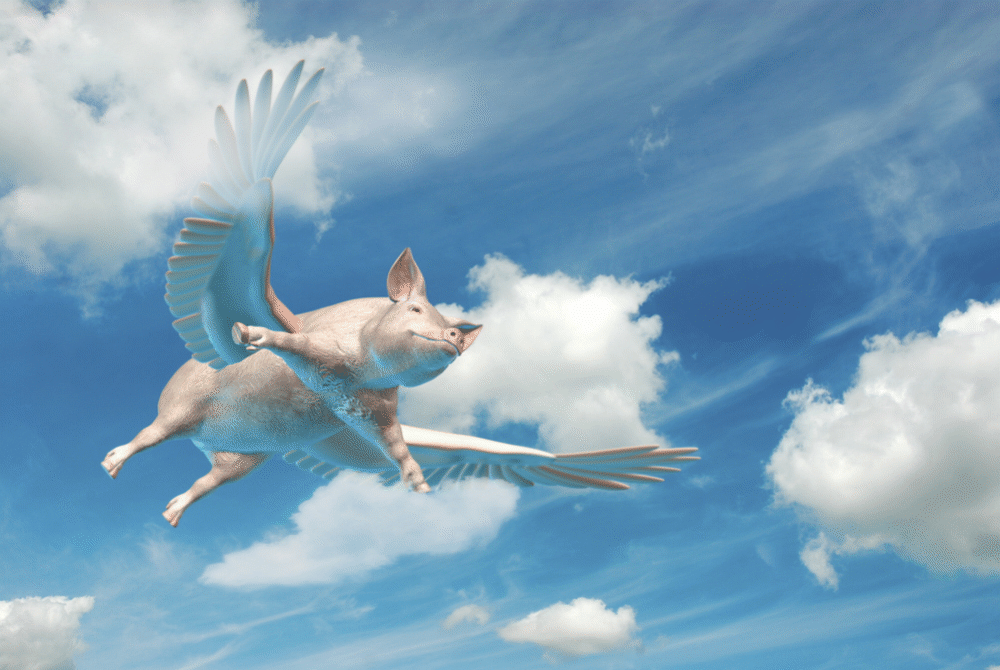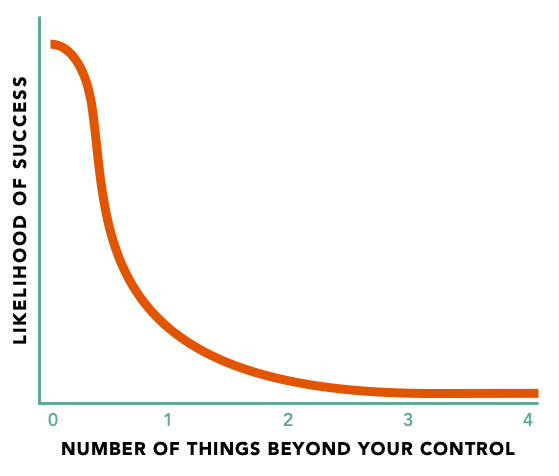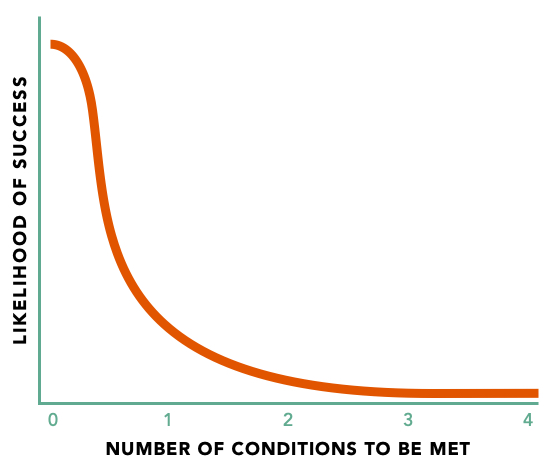
The old saying is that if you fail to plan, you plan to fail. That’s only part of the story, though. You can plan the hell out of something, but you can still fail because there was something wrong with the plan. I had a failed plan last week, and I recently talked with someone who was in the middle of a failing plan. So I’m going to share some thoughts on the subject. And I’ll try to follow my own advice.


You can control what you do, and you might have some solidly dependable people in your life, but beyond that, you can’t really control others. Blanche Dubois might have depended upon the kindness of strangers, but it’s a bad plan for the rest of us.
You can’t control people, or the weather, or institutions, or market fluctuations, or anything else that can throw a monkey wrench in your plan. It’s risky enough having one uncontrollable thing in a plan, but sometimes our plans are built on several of them. The likelihood of failure increases exponentially. You could be doomed before you start. Unless you have a huge pile of luck. But:

Las Vegas was built on people wrongly believing in luck. It’s called luck, rather than a sure thing, because it’s the least likely thing to happen. Luck is not only the weak link in a plan, it can be the poison pill.


Yes, this looks like the first graph. It’s the same principle. Even though the plan might be free of things beyond your control, you might have too many ducks to get in a row, too many cats to herd. Too little time. Too little skill. And so on. Less is more. If a plan can’t be simplified, break it into several smaller plans. How do you eat a whale? One bite at a time. Having several simpler plans also allows you to feel successful sooner and more often.

Don’t become too married to a plan or its details. I knew exactly the van I wanted when I started planning my nomadic life. The trouble was finding a used one for sale (Thing Beyond My Control #1) at the time I was shopping (Thing Beyond My Control #2) in the condition I wanted (Thing Beyond My Control #3) in the price range I wanted (Thing Beyond My Control #4) with the mileage I wanted (Thing Beyond My Control #5). So I loosened my parameters and bought something slightly different. Because heading out on the road was more important than what I did it in.
Flexibility is a virtue. Our bodies, for example, are rigid parts held together by soft stuff. The more flexy bits a plan has, the better. Because we can bend the plan to fit the situation instead of trying to bend things that are beyond our control to fit the plan.
I had planned on writing more, but I’m going to be flexible and end it here.

Wow! Really great article! I never actually thought about this.
Just want to say how much I appreciate these newsletters.
Short and sweet and straight to the point. ‘Nuf said.
I have to say that after 9,137 miles driven from CLE to Seattle and back, I realized I need a bigger van. Still, keep plans loose.
Excellent, I need to remember the 5 points mentioned in the article, need to be more flexible ’cause I usually have the tendency to force stuff to fit my plans & often times things don’t work my way. Thanks for the reminders.
Plans always change. My recently retired wife and I loaded my minivan in the dead of Cleveland Ohio winter, 1/30/21 and drove the southern route to Seattle. It was a great journey, first of 3 for the year. No plans made it easy to alter the route for another roadside attraction, and then avoiding interstates as much as possible, and visit National Parks, friends and family along the way. We got to Seattle March 2nd….
The KISS principle (Keep it stupid simple) could summarize your great article. Good Job.
TFBLE-Think First But Live Easy
Saving this one. Thank you.
Great points, well said
As a professional project manager i applaud the concise wisdom in this article! Bravo!
So true. But, so funny. You do have a way with words.
The best laid plans of mice and men (like cigarette butts) oft go “ashtray”…………….sorry
??????
I love it. It’s all algebra. Simplify, eliminate unnecessary terms, always reduce to simplest terms, the numbers don’t lie. we are reliant on our critical thinking. Consider only the things that matter. These are great survival skills that I rely on daily on the road.
Al, I Read your articles here like I did on the Rolling Steel Tent…read, laugh and lurk!! This planning stuff reminded me how you undoubtedly had plans to bring in that step you had a few years ago that you drove off and left behind at least once….lolol
I had grand plans for being totally competent.
no plan survives first contact with the enemy.
(some random German general, Franco-Prussian war, I believe.)
Or the version of that idea attributed to Mike Tyson: “Everyone has a plan until they get punched in the face.”
This is probably one of the best life lessons I have ever read, thank you!
I have lived in a number of RV.s (motor homes & one 5th wheel) I find older low miles class C are what I consider the best – I am in a 24 ft with 68K miles a great running dodge 360v8 and yes I pretty much gutted the inside – but total cost so far about 3K – – I also have bought and sold a few at reasonable profits – this can be done with just a bit of study. Plan on new tires and a drive from Albuquerque (land of rust free) to Michigan in June
Excellent advice here. I believe in having a goal, taking note of experienced people’s advice, making lists, checking them off as I accomplish each step and stepping into the new experience. But at each step I realized adaptability was my biggest asset. Plan? Yes. But always be prepared to adapt, change and grow. Thank you again for another thought provoking article.
I’ve concluded, the best laid plans aren’t. Forget Plan B, and lower your expectations.
“Las Vegas was built on people wrongly believing in luck. It’s called luck, rather than a sure thing, because it’s the least likely thing to happen. Luck is not only the weak link in a plan, it can be the poison pill.”
Actually that’s only part of it. They fail to plan to win and know how to win. The secret is in your other comment on how to eat a whale, one bite at a time. 99.99% of people that gamble have no idea how to win. So they fail just by bringing money into a casino. Almost all of them use wishful thinking and hope that it works. It almost never works. When it does most give it all back. It’s the very best example of failing to plan. I’m glad you used it in your blog.
Although I wasn’t thinking about it at the time I wrote the post, “whale” is also gambling slang for a high roller. How does one eat that type of whale?
I hit the road in my new camper early in the pandemic, my job having turned remote temporarily. Although I have a professional planning degree, my trip was entirely unplanned. I made it from Maine to Arizona, and back again, over the fall, winter, and spring months, mostly avoiding typical Maine winter weather, all without a plan. There was that deep freeze in Texas last winter where I hunkered down in a state park right outside Dallas, thankfully never losing power and the ability to use my electric space heater! A lot of my loose ‘plans’ fell apart as a result of weather, but enjoyed a night at a city park (first nights are free!), and moved on to stay at the rodeo in Santa Fe – rented out during the pandemic since they weren’t hosting rodeos. Things I never would have discovered if I had made a plan or insisted on sticking to plans that I did make. Love seeing your posts – especially your charts! – even if it takes me a while to get to them!